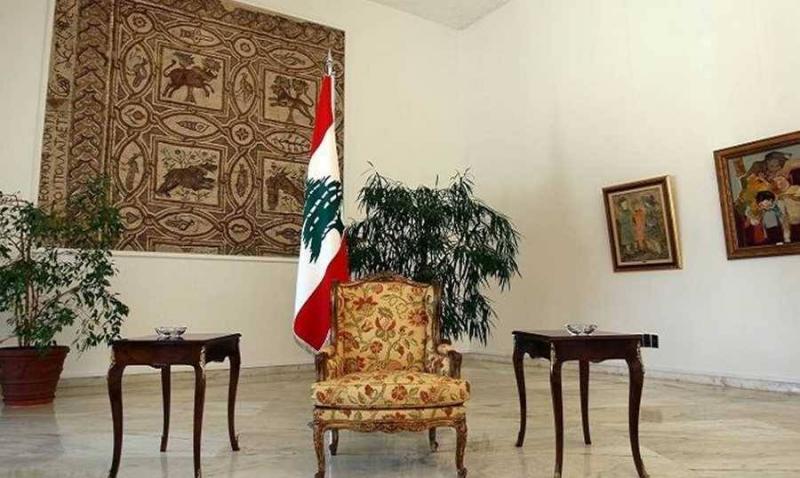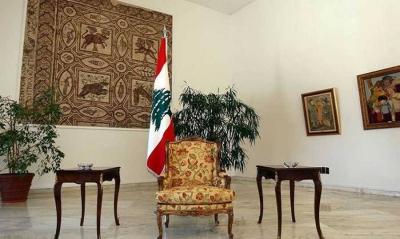On the presidential front, all the movements that attempted to put the presidential file on the path to resolution have failed. According to reliable sources for “Al-Jumhuriya,” there was a recent hope for a presidential breakthrough facilitated by the quintet committee, but this committee has encountered internal disagreements, leading to its members not reaching a consensus. This indicates that the quintet has acknowledged the difficulties of its mission, sending a very clear message that the presidential file has returned to a prolonged state of deadlock.
The sources summarize the difference of opinion as follows: the quintet publicly asserts agreement among Lebanese on a president, with no veto on any candidate, nor endorsement or preference for any candidate, while internally, it is divided into three directions. The first direction still places vetoes on certain names and insists on the need for a third option. The second direction sees no benefit in dialogue among the political components, claiming that this dialogue does not have consensus among these components and is rejected by key political forces. Therefore, they believe that progress can only be achieved through the intermediaries' movements and their efforts among these components away from the spotlight, which have previously achieved some progress. The third direction does not seem in a hurry to resolve the presidential issue, while it is known that the French side is pushing in this direction. The most active party within the committee is not enthusiastic about conducting presidential elections at the current time, preferring to postpone them until after resolving the situation in the southern border area.
**No New Movements**
Informed sources on the recent activities of ambassadors from the quintet indicated to “Al-Jumhuriya” that there is currently no intention for a new initiative. The same was confirmed by a responsible source who stated: it seems that the committee’s mission has been put on ice. We were optimistic about the movement of the ambassadors, who came to us in agreement, confirming a united stance towards the presidential file and the need for its quick resolution, with one will to assist the Lebanese in agreeing on a president. However, it didn’t take long for us to uncover deep differences between committee members, especially between the Americans and the French. The natural result of this is an extension of the presidential vacuum and a return to prolonged waiting in the deadlock.
Remarkably, the same responsible source indicated that the anticipated visit by Jean-Yves Le Drian to Beirut seems to have been canceled due to the disagreements among the quintet members, who do not unanimously consider him as an intermediary acting on their behalf. However, he did not rule out that the Qatari envoy might resume his activities regarding the presidential issue, stating: I do not say this based on information, but rather as a prediction, especially since the Qatari envoy did not conclude his previous movements but suspended them due to security developments on the fronts of Gaza and southern Lebanon, as well as synchronizing them with the quintet’s renewed efforts. Now that this committee has failed, it is not unlikely that the Qatari initiative will be renewed.
**Moderate Movement**
Amid these circumstances, deputies from the National Moderation bloc continue their efforts to break the deadlock. In this context, a delegation from the bloc, including deputies Ahmad Khair, Abdul Aziz Al-Samad, and the bloc's former secretary Hadi Habesh, visited members of the National bloc, deputies Michel Mur and Tony Frangieh, and William Toueik, at Mur's office in Shalhoub building - Zalka, where they discussed the ideas proposed by the bloc.
After the meeting, Mur stated that the meeting was positive, affirming their positive and friendly relationship. He mentioned that they share many points with the National bloc while differing on some matters. He added: We welcome any initiative for dialogue and will engage with it positively, but we did not provide any commitments to the Moderation bloc today. As a bloc, we have our steadfast candidate, the head of the Marada Movement, Sleiman Frangieh, who received 51 votes in the last electoral session. He noted that they will discuss with their allies to explore possible options, emphasizing that there is no disagreement with the Moderation bloc and that any general dialogue is welcomed.
**Frangieh's Position**
For his part, Deputy Tony Frangieh affirmed that they are far from the option of Sleiman Frangieh withdrawing from the presidential race and also distanced themselves from the presidential names proposed by others, stating they would not proceed with hesitance or embarrassment to withdraw Frangieh’s candidacy. He remarked: If there is consensus on any figure other than Sleiman Frangieh, then the votes of the independent National bloc will not be necessary, stressing that the relationship between them and the Moderation bloc is strong and they coordinate on many matters, despite the latter not voting for Sleiman Frangieh.
Frangieh indicated that they always engage positively with any dialogue and await its format and conditions, carefully considering their options, although they previously stated they would not enter any dialogue with preconditions, expressing their desire to participate in any discussions. He noted: We will not provide a response except after coordination and consultation with our allies and with the deputies who voted for the head of the Marada Movement in the last presidential electoral session, including Hezbollah, whose 13 deputies voted for Frangieh out of 51 from different affiliations. We will stand by those who supported us. We are positive regarding any initiative for dialogue, which we have always expressed. When others rejected dialogue, we were the ones who called for it.
In response to a question about whether Frangieh's non-withdrawal is a condition for participating in the dialogue, Frangieh stated: We want a clear and candid dialogue without any conditions or counter-conditions. Our candidate is clear and steadfast, unlike the candidates of the other side who are unpredictable.
The Moderation bloc also met with the National Consensus bloc, which includes deputies Faisal Karamé, Taha Najy, Hassan Mourad, Mohammed Yahya, and Adnan Trabulsi, at the home of President Omar Karamé in Beirut. Members of the Moderation bloc assert that the essence of this movement is to open the door for consensus on electing a president. This movement was conducted in consultation with Speaker Nabih Berri, who conveyed to the members of the Moderation bloc his full support for their endeavors, emphasizing the priority of consensus and understanding, without any veto on any candidate, encouraging parties to sit together at a dialogue table, consultation, meeting, or gathering under any title to achieve this consensus or understanding.
The Moderation bloc members stress the urgent need to expedite the presidential elections, compelling all parties to recognize their responsibilities in pushing the presidential file towards election. However, their movement faces challenges as they struggle to bring some parties down from their trees of obstruction. The sweet talk that their movement receives from these parties, whether in praise or support, is not convertible in the presidential bank.
While President Berri supports the Moderation bloc’s efforts, hoping they can move the stagnant presidential waters with their initiative, some middle sources told “Al-Jumhuriya”: The Moderation deputies’ movement is good and reflects care and responsibility. But let’s be frank, may God help them, as they are playing in a field that is not insurmountable, but rather challenging against players with rigid stances and extreme orientations who consider themselves greater than the country. If five countries in the quintet committee, and previously and subsequently Macron’s and Le Drian’s France, and then the Qataris have all failed in unraveling the complexities of the presidential file, will these deputies, with all our respect for them, be able to convince Samir Geagea, Gibran Bassil, and Hezbollah to accept viewpoints that contradict their own? I doubt that. Furthermore, what does it mean for them to meet with religious authorities?
**Berri: Today Before Tomorrow**
In this context, President Berri confirmed to “Al-Jumhuriya” that the accelerating developments in the region, reaching southern Lebanon, should motivate the Lebanese to elect a president today before tomorrow. He stated that he supports any effort that establishes consensus or understanding to expedite the election of a president, reiterating his readiness, if consensus is reached and with the two-thirds quorum required for convening and voting, to call for consecutive electoral sessions until a president is elected.
On another note, Berri confirmed that they do not desire war, stating that Hezbollah, since the first day of the confrontations with the enemy, has not deviated from the rules of engagement, targeting only Israeli military sites, while Israel intensifies its attacks on Lebanese areas, targeting civilians, civil institutions, and civil defense sectors, even using phosphorous shells against forests, reflecting its aggressive intentions to broaden the scope of war. He pointed out that Israel’s aggression not only drags Hezbollah into a war but pulls all of Lebanon into a position of resistance and defense of our country.




